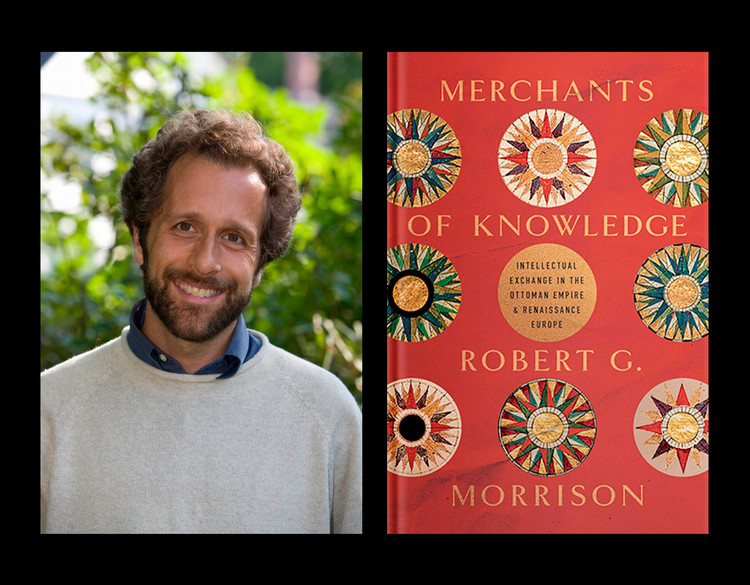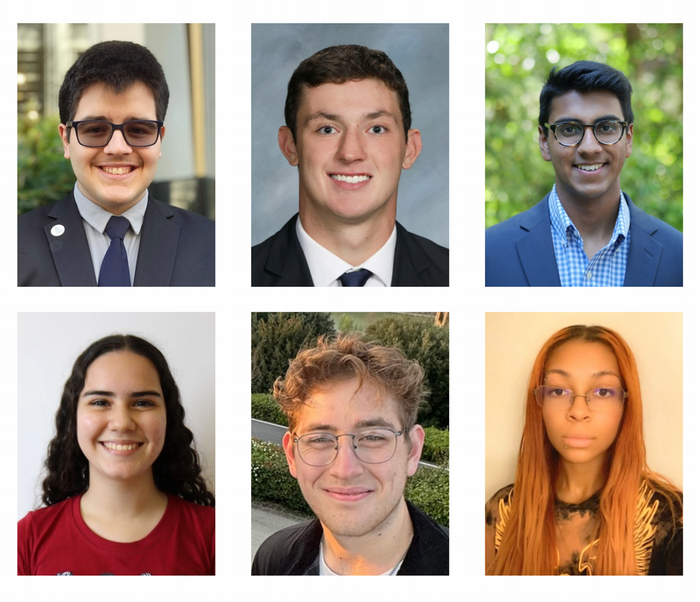"Voices From the Past," Convocation 2015, Dean of Student Affairs Timothy Foster
By Rebecca GoldfineVOICES FROM THE PAST
Timothy Foster, Dean of Student Affairs
2015 Bowdoin Convocation
Good afternoon.
I typically poke around the College archives to draw the voices for these talks from Bowdoin’s long and distinguished history.
But this year’s voice is contemporary, and the focus is very personal to me.
Wil Smith was the first student I ever met with at Bowdoin. We started here two days apart in 1996.
Wil coached my son in basketball; our daughters—two months apart in age—attended the Bowdoin Children’s Center together; and I hired Wil, twice—immediately after his graduation from Bowdoin and then again right after he graduated from law school.
So, this is personal.
Wil Smith’s story is about taking risks, overcoming adversity, prioritizing that which matters most, living a principled life, and giving back—always giving back—in ways that put others before oneself.
Born in a tough part of Jacksonville, Florida, Wil was the last of ten children.
His mother, Mildred, who raised Wil and his siblings singlehandedly—and who Wil would describe as “the most incredible person I ever met”—died of cancer on Wil’s fifteenth birthday.
After high school, he attended Florida A&M University for a year before dropping out, drifting and flirting with trouble before joining the Navy.
Wil trained to be an aviation electronics technician, served in the first Gulf War and, while stationed in Italy, got orders transferring him to Brunswick.
“I was happy,” Wil remembered. “I thought it was Brunswick, Georgia, near my family in Jacksonville. I’d never heard of Brunswick, Maine.”
It was during his time at the now-closed Brunswick Naval Air Station when Wil’s leadership skills began to emerge.
“I’m best as a human being,” Wil said, “when I have others besides myself to focus on.”
So, Wil volunteered to coach football and basketball at a local school.
His talent and potential caught the eye of Bowdoin men’s basketball coach Tim Gilbride, who asked Wil if he had ever thought of getting a college degree, and if he would consider applying to Bowdoin.
At a crossroads in his Navy career, Wil decided to give college a try. He applied and was accepted, but he wasn’t sure he could succeed.
You see, Wil was a non-traditional student at Bowdoin in almost every respect.
He was 27 years old when he enrolled, and one of only a handful of African-American students in his class.
He was also a single dad caring for his infant daughter, Olivia—a fact that he left off his Bowdoin application.
“It was very chaotic in the beginning,” Wil remembered years later in a conversation with Olivia.
“I actually thought that if Bowdoin knew I had you, they wouldn’t let me come, so I didn’t mention you to anyone.
For the first semester, I lived off campus with a roommate and worked at Staples at night, cleaning.
I had to take you to work with me sometimes and hide you in the closet.”
The money Wil saved from the Navy disappeared quickly that first semester at Bowdoin.
The stress got worse and real doubts set in.
“There were several times during that first year when I heard the echoes of, ‘Why are you leaving the Navy? I’m not smart enough to be here. I don’t have any money. I don’t have anything.’”
That’s when Wil turned to his Bowdoin advisor and shared some of his story.
The advisor contacted Betty Trout-Kelly, a staff member in the president’s office, who, as Wil remembered it, offered assistance and a stern word of advice.
“I know you feel you shouldn’t need this support,” Betty told Wil.
“If you don’t take the help we can offer, it will be your fault. And if you don’t accept it, you won’t make it.’”
Wil accepted the help.
He moved on campus, started eating at the dining hall, and, with funds from an anonymous donor, enrolled Olivia in the Bowdoin Children’s Center.
“I will prove myself worthy,” he told us, and he set off to earn his degree and the admiration and respect of the Bowdoin community.
But even with assistance, Wil’s path at Bowdoin was never easy.
“It took me a while to figure it out,” Wil remembered just last year.
After a full day of classes, basketball practice, and his multiple responsibilities as a campus leader, Wil would take Olivia back to their small apartment.
“[I] would…bathe her,” he remembered, “and get her off to bed, then sit down to start my work when I was already exhausted.
I would be able to get in about an hour or two when I probably had five hours of homework. When I finally figured it out, my best strategy was to go to sleep when I put [Olivia] to bed…and then wake up at…four in the morning [to] get a jump on my studying.”
A sociology major with a minor in economics, Wil also continued to serve in the Navy to help pay the bills, and was even called to active duty during the Balkans conflict his junior year.
And on campus, he served a leading role with a group tasked by President Edwards with improving diversity at the College, providing a crucial voice in moving Bowdoin to take a chance on students from very different and, in some cases, challenging backgrounds.
Summers were busy too, with Wil working as a counselor at Seeds of Peace International in Otisfield, Maine, where young people from areas of conflict around the world come together to forge relationships and to learn from one another.
He was twice elected captain of the nationally-ranked Bowdoin men’s basketball team, and he got other athletes at the College to volunteer at rural schools.
Wil also relied on his teammates to help him care for Olivia—the one person who kept him going.
“There were nights,” he recalled, “when I was working on papers when I was just ready to quit and give up.
And, I would literally just go into her room and lay down next to her for a bit and get re-inspired to do what I had to do.”
Years later, Wil told Olivia what it was like the day in May 2000 when he finally received his Bowdoin degree.
“I carried you in my arms to get my diploma, and the dean called both of our names.
All my classmates stood up and cheered—they gave me the only standing ovation of the day.
It confirmed what I had endured for the past four years.
But it’s no heroic thing that I did; I’m your father, and it was the right thing to do.”
Wil continued to do “the right thing” for years after Bowdoin.
He stayed on after graduation as the coordinator of multicultural student programs, and he kept up his work as a mentor and advocate beyond Brunswick.
“I feel like I have an obligation to every young person I come in contact with,” Wil explained, as he went on to advise civil rights teams in local schools; to travel around Maine talking to educators about the challenges of diversity; and to coach a girl’s high school basketball team to the state championship game.
They lost, but as one player remembered, Wil’s lessons were more important than any trophy.
“He will always be…in the back of my head [saying] ‘come on you can do this, just push a little harder.”
Wil pushed himself more than he pushed anyone else.
He went on to law school, returning to Bowdoin in 2006 as assistant dean working to help the College expand access and opportunities for students of color.
A year later, he was profiled by Ron Allen of NBC News, who described Wil in a “Making a Difference” segment as a “coach from a small place, helping young people do big things.”
In 2010, Wil left Bowdoin again to become dean of community and multicultural affairs at the Berkshire School, and that’s where he was in the spring of 2012 when he was diagnosed with colon cancer.
Wil continued at Berkshire and for the next three summers as associate director at Seeds of Peace while he endured grueling treatments for the cancer that would eventually take his life.
He died this past February at the age of 46 in a Philadelphia hospital surrounded by the love he had done so much to generate during his short but wildly full and accomplished life.
Mel Allen, the longtime editor of Yankee Magazine who wrote about Wil in 2000 for the Bowdoin alumni magazine, put it this way:
“In over 35 years writing stories for Yankee about the people who lived in New England who helped shape the region, the story of Wil Smith and his daughter Olivia remains the most inspirational I have been privileged to write.”
And this from a counselor at Seeds of Peace:
“Wil Smith danced brightly in life, creating ripples in 46 years that will last many lifetimes over.
What did he pass on? It was a spirit that many of the greats of this world have shared: love, joy, humor, [and] a steel-will to do what is right.”
As Wil said, doing what’s right meant doing “…whatever you can, with whatever you have, wherever you are.”
Good words and inspiration for us all as we begin a new academic year.
Thank you for listening.



